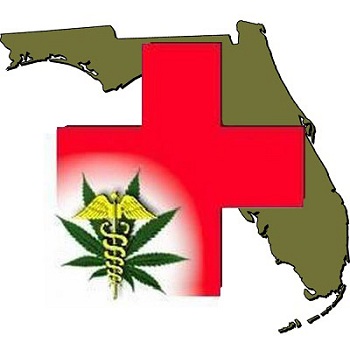A new medical marijuana industry has been on hold in Florida, but permit processing can now begin following a court decision this week that upheld newly-developed regulations.

The Florida legislature approved medical marijuana in 2014, though the program’s rules and regulations were rewritten and then challenged, which has delayed permit processing. The proposed statewide medical-marijuana program would allow five companies to grow low-THC marijuana, and then sell the extracted oil as medicine for qualifying patients.
Grow operations would be located in five regions: Southeast, Southwest, Central, Northwest and Northeast Florida. The latest court case involved a Central Florida nursery who challenged the recently-developed rules, claiming they were unfair to potential permit applicants because they favored large, politically-connected nurseries.
The rules do have significant requirements for potential grow operations which could limit the pool of applicants in some regions. Applicants must have been in business at least 30 years, with capacity for at least 400,000 plants.
Florida's Department of Health issued a statement about how it intends to move forward quickly, now that the latest legal challenge is resolved: "We remain committed to ensuring safe and efficient access to this product for children with refractory epilepsy and patients with advanced cancer. We are moving swiftly to facilitate access to the product before the end of the year."
The department can start accepting applications for licenses within 20 days. The new rules could face further challenges, but at this time there no pending cases, and implementation is proceeding.
FULL STORY: State's medical-marijuana law clears legal hurdle

Alabama: Trump Terminates Settlements for Black Communities Harmed By Raw Sewage
Trump deemed the landmark civil rights agreement “illegal DEI and environmental justice policy.”

Study: Maui’s Plan to Convert Vacation Rentals to Long-Term Housing Could Cause Nearly $1 Billion Economic Loss
The plan would reduce visitor accommodation by 25% resulting in 1,900 jobs lost.

Planetizen Federal Action Tracker
A weekly monitor of how Trump’s orders and actions are impacting planners and planning in America.

Waymo Gets Permission to Map SF’s Market Street
If allowed to operate on the traffic-restricted street, Waymo’s autonomous taxis would have a leg up over ride-hailing competitors — and counter the city’s efforts to grow bike and pedestrian on the thoroughfare.

Parklet Symposium Highlights the Success of Shared Spaces
Parklets got a boost during the Covid-19 pandemic, when the concept was translated to outdoor dining programs that offered restaurants a lifeline during the shutdown.

Federal Homelessness Agency Places Entire Staff on Leave
The U.S. Interagency Council on Homelessness is the only federal agency dedicated to preventing and ending homelessness.
Urban Design for Planners 1: Software Tools
This six-course series explores essential urban design concepts using open source software and equips planners with the tools they need to participate fully in the urban design process.
Planning for Universal Design
Learn the tools for implementing Universal Design in planning regulations.
Caltrans
Smith Gee Studio
Institute for Housing and Urban Development Studies (IHS)
City of Grandview
Harvard GSD Executive Education
Toledo-Lucas County Plan Commissions
Salt Lake City
NYU Wagner Graduate School of Public Service




























